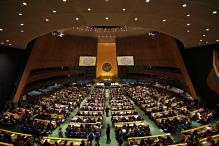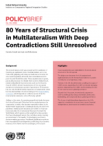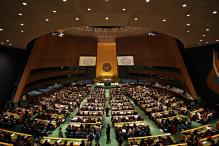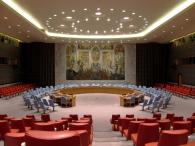Sebastian von Einsiedel wrote the following article published in the Japanese-language version of Asahi Shimbun.
On 1 July, Japan assumed the rotating presidency of the UN Security Council, where it serves as an elected member for two years. It is a painful reminder that despite being the world’s third largest economy and the second largest financial contributor to the UN, Japan’s goal of securing a permanent seat in this body remains elusive.
Today’s Council still reflects the world of 1945, with its five permanent seats held by the victor powers of World War II. No African or Latin American country holds such a seat, and China is the only Asian permanent member. The Council’s lack of representativeness and its inability to accommodate rising and other large powers is progressively undermining the UN’s relevance.
In 2004, Japan banded with Brazil, Germany and India to found the Group of Four (or “G4”), making common cause for six new permanent seats — two for Asia, two for Africa, one for Europe, and one for Latin America. Their proposal was balanced, not least by committing any new permanent members not to use their veto rights until the veto issue would be revisited fifteen years down the road. It just had one flaw: it failed to convince the necessary two-thirds majority of UN member states and was never put to a vote.
Already a long-shot in 2004, the chances of the G4’s reform model have dimmed since. China, unenthusiastic about the prospect of other Asian permanent members in the Council, has grown both more influential and more assertive at the UN. Washington’s attitude towards the G4 effort has cooled, when it found India and Brazil difficult to deal with during their last stint on the Council a few years ago.
Even more problematic, adding new permanent seats to the Council is far less popular among the wider UN membership than the G4 are willing to acknowledge. Indeed, the very principle of permanency is widely questioned. Many wonder: will we have to enlarge the number of permanent members again and again as new powers rise, without any ability to remove those that have fallen? And given that the existing Permanent Five often behave with studied superiority towards other member states, why should any country wish for more such members?
To break the current logjam, I believe the G4 should seriously consider reform models that envisage a new category of six semi-permanent Council seats, with renewable terms of eight or ten years. No doubt, such a reform would fall short of the legitimate aspirations of G4 capitals. They would be denied full membership in the exclusive P5 club. They would have to shelve for good their claims to acquiring a veto right. And they would have to run costly campaigns for such semi-permanent seats with no guarantee of being (re-)elected.
Yet, such a model would bring a big improvement over the status quo. For the G4, securing a semi-permanent seat is not a first class ticket — but it would at least be a business class upgrade. This would give them the possibility of serving in the Council for extended periods of time, thus gaining in expertise, experience, stature and influence in ways that are currently impossible for them. Crucially, this model would be more acceptable to the many skeptics of permanency, giving it a greater chance of being adopted. In times of proliferating crises around the globe, showing that the UN is capable of reforming itself and saving it from irrelevance is more important than ever.




